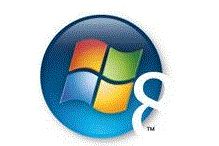Microsoft confirms Windows Store for February
The Windows Store is coming, but Microsoft hasn't been so brave as to give developers better than 70 per cent for apps that make less than $25,000.

Microsoft has released details on the Windows Store, confirming it will land alongside the Windows 8 Beta in February 2012.
In the beta period of the store, all apps will be free, as Microsoft confirmed it is not offering support for paid apps during that time.
Microsoft has stuck with the traditional model of offering developers 70 per cent of revenues from sales on the Windows Store, although has announced apps that achieve $25,000 (16,000) in revenue will get an 80/20 split.
Apple and Google only offer the 70/30 deal for developers.
"So, once an app establishes a bit of success, we increase the revenue share to 80 per cent to reflect and reward that success," said Ted Dworkin, partner programme manager for the Windows Store, in a blog post.
Deployment flexibility ensures that employees have software on the devices they prefer.
"And when you look at the breadth of the Windows customer base, the potential for innovation on the platform and the appeal of new devices that take advantage of these software and hardware advances, we expect an entirely new scale of economic opportunity to be realised for app developers."
Get the ITPro. daily newsletter
Receive our latest news, industry updates, featured resources and more. Sign up today to receive our FREE report on AI cyber crime & security - newly updated for 2024.
The Redmond giant was also keen to reassure IT departments it has thought of them in the development of the store. In particular, it has paid attention to access management.
"Enterprises can choose to limit access to the Windows Store catalogue by their employees, or allow access but restrict certain apps. In addition, enterprises can choose to deploy Metro style apps directly to PCs, without going through the Store infrastructure," Dworkin added.
"For Windows 8 Beta, IT administrators can use group policy to permit Metro style app installations, as long as the apps are signed by trusted publishers and the machines are joined to the domain. Then the IT admin can use powershell commandlets to manage those Metro-style apps on Windows 8."
Not only can IT administrators control the apps directly on the Windows 8 PCs they manage, but they can also manage them across work and home devices, Microsoft said.
"This deployment flexibility ensures that employees have software on the devices they prefer while IT can continue to manage software payloads based on their company's needs and regulations," Dworkin said.
See below for Microsoft's lowdown on the Windows Store:
Tom Brewster is currently an associate editor at Forbes and an award-winning journalist who covers cyber security, surveillance, and privacy. Starting his career at ITPro as a staff writer and working up to a senior staff writer role, Tom has been covering the tech industry for more than ten years and is considered one of the leading journalists in his specialism.
He is a proud alum of the University of Sheffield where he secured an undergraduate degree in English Literature before undertaking a certification from General Assembly in web development.





